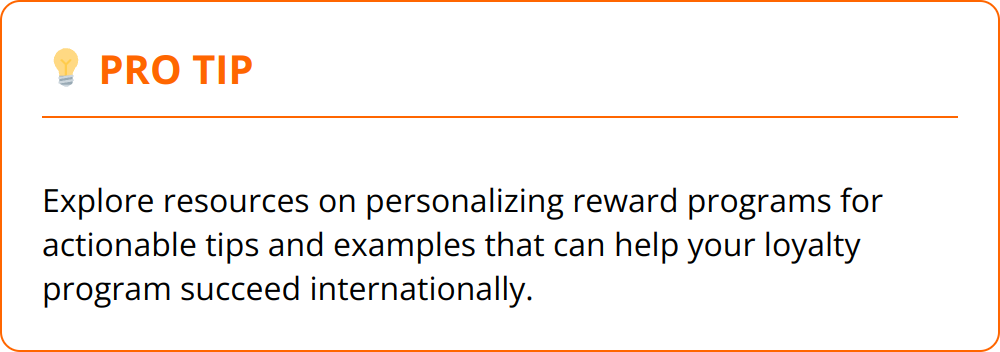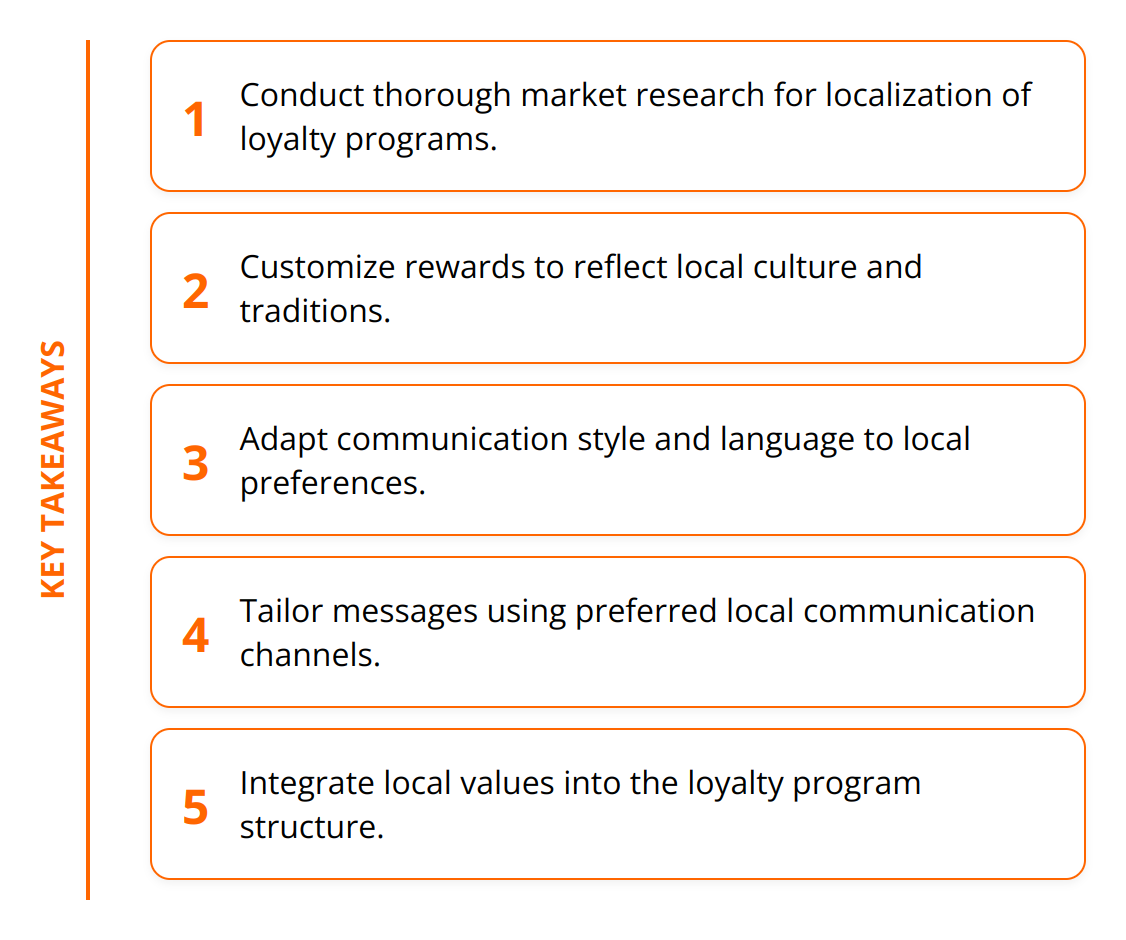
We at Reward the World understand the importance of cultural sensitivity in crafting successful loyalty programs. Recognizing the diverse preferences and traditions across global markets is key to engaging customers effectively. This blog post: Cultural Impact on Loyalty Programs Explained explores how cultural factors influence loyalty programs and shares insights into adapting these programs for different cultural contexts. Through real-world success stories, we highlight the power of culturally informed strategies in enhancing customer loyalty.
Navigating Cultural Sensitivity in Loyalty Programs
Understanding the cultural nuances that influence consumer behavior and preferences is essential when designing loyalty programs. A lack of cultural sensitivity can lead to undesirable outcomes, including diminished brand loyalty and potential PR setbacks. Adapting loyalty programs to cater to cultural differences isn’t just about translating language; it’s about comprehensively understanding what drives loyalty in different cultures and regions.
Adapting Offers to Local Preferences: One size does not fit all in the realm of loyalty programs. In Japan, for instance, where quality and service are highly valued, loyalty programs that emphasize premium experiences and high-quality rewards outperform those focusing solely on discounts. Conversely, in markets with a high sensitivity to price, such as certain Southeast Asian countries, discount-driven loyalty programs might resonate more. This demonstrates the importance of local market research in shaping loyalty initiatives.
Celebration and Recognition Matters: The way you celebrate and recognize loyalty can vastly differ from one country to another. While in the U.S., a straightforward points-for-purchases system is widely accepted, in Latin America, integrating social recognition into loyalty programs — where members’ achievements are celebrated on social media — can significantly enhance engagement. It taps into the local culture’s emphasis on social bonds and community.
Tailoring Communication Styles: Not just what you communicate, but how you communicate it, plays a significant role in the success of a loyalty program. Some cultures prefer direct and clear messages, while others respond better to storytelling and indirect communications. Understanding these preferences is key to crafting messages that resonate and encourage loyalty.

Key Takeaways:
- Conduct thorough market research before launching loyalty programs in new markets.
- Customize rewards and recognition to fit local cultural values and practices.
- Adapt communication strategies to align with local consumer preferences.

For insights on how to design customer appreciation rewards that resonate across different cultures, exploring available resources can be invaluable. A detailed guide on personalizing reward programs offers actionable tips and examples that go beyond borders, ensuring your program is as effective in Paris as it is in Tokyo.
Navigating cultural preferences in loyalty programs is not just about avoiding missteps; it’s about making genuine connections with your audience wherever they are. This approach doesn’t just protect your brand from cultural faux pas; it builds deeper, more meaningful relationships with customers around the globe.
Tailoring Loyalty to Local Cultures
When launching or adapting loyalty programs across different cultures, understanding and integrating local traditions and communication preferences is not optional—it’s indispensable. This chapter zeroes in on two critical areas: customizing rewards to reflect local traditions and fine-tuning language and communication strategies to meet the expectations of diverse customer bases.
Customizing Rewards to Reflect Local Traditions
The impact of a loyalty program is significantly enhanced when rewards are deeply ingrained in the local culture. For example, offering festival-related rewards, such as special discounts or points during local holidays like Diwali in India or Thanksgiving in the U.S., can boost engagement levels. Here’s how you can achieve it:
- Conduct Local Research: Identify what is valued in each culture. It may be exclusivity in one place and community recognition in another.
- Engage with Local Trends: Tapping into trendy local activities, such as cooking classes for popular regional dishes or tickets to local sports events, can create a buzz.
- Utilize Local Products: Offering rewards from local artisans or brands can foster a sense of pride and support for the local economy.
Taking note of these aspects demonstrates respect and appreciation for local cultures, increasing the appeal of your loyalty program.
Language and Communication Strategy
The language used in your loyalty program and how you communicate offers, points, and rewards play a significant role in its success across different geographies.
- Adapt Your Language: Not just translating your content, but ensuring it aligns with local idioms and expressions. For example, a casual tone might work well in the U.S., but a more formal approach may be necessary in Japan.
- Use Local Channels: Understanding and leveraging preferred local communication channels, whether it’s WhatsApp in Brazil or WeChat in China, is crucial for engagement.
- Tailor Your Messaging: Customize messages to reflect local consumer behavior and preferences. Highlighting family values in messaging might resonate well in collectivist cultures, while emphasizing individual achievement and freedom might work better in individualistic cultures.
Implementing these strategies requires sensitivity and a willingness to invest in localization—not just translation. Making the effort to customize your loyalty program for different cultural expectations can result in deeper connections and increased loyalty to your brand.

For more insights on creating engaging loyalty programs, check out our guide on customer appreciation rewards.
In summary, adapting your loyalty program to cater to different cultures involves more than just altering the language or changing images on your website. It entails a profound engagement with the local culture, traditions, and communication styles, resulting in a loyalty program that’s not just present but is meaningful and resonant across geographies. Following these practical tips can set the stage for a loyalty program that truly connects with its audience, no matter where they are.
Culturally Adapted Loyalty Successes
Delving into the realm of loyalty programs, we frequently observe a pattern where success is directly tied to how well a program aligns with local culture and consumer expectations. Let’s learn from two compelling case studies that exemplify the power of cultural adaptation in loyalty programs.
Case Study 1: A Retail Brand in Japan
In Japan, a nation known for its appreciation of service quality and attention to detail, a leading retail brand redefined loyalty success by focusing on premium experiences and high-quality rewards. They launched a loyalty program that emphasized exclusive services, such as priority shopping hours and personalized shopping assistance, which resonated deeply with Japanese consumers.
Key strategies included:
- Personalization: Understanding individual customer needs and offering tailored rewards.
- Quality over Quantity: Focusing on the quality of rewards rather than offering frequent, low-value promotions.
- Exclusivity: Providing members-only access to products and events, enhancing the sense of belonging to an elite community.
The program led to a significant increase in repeat purchases and customer engagement, showcasing that in markets that value quality and exclusivity, like Japan, loyalty programs that highlight these elements outperform discount-centric ones.

Case Study 2: An Airline’s Frequent Flyer Program in the Middle East
In the Middle East, where hospitality and personal relations hold great value, an airline’s frequent flyer program tapped into these cultural tenets to redesign their loyalty scheme. They introduced features that aligned well with the regional ethos of generous hospitality, such as family pooling of miles, priority check-in for families, and personalized greetings for frequent flyers.
Innovations included:
- Family Focus: Allowing miles earned by any family member to contribute to group benefits, reinforcing the cultural importance of family.
- Personalized Services: Providing tailored experiences at airports and during flights, recognizing the high regard for personal hospitality.
- Rewarding Loyalty Generously: Offering substantial rewards and benefits even for lower-tier members, reflecting the regional culture of generosity.
This approach not only solidified customer loyalty but also attracted new users who valued the emphasis on family and personal connection, proving the effectiveness of culturally aligned loyalty programs.
Tips for Cultural Adaptation:
- Understand local values and integrate them into your program.
- Prioritize personalization and quality to meet regional expectations.
- Recognize the power of community and family in loyalty strategies.
By studying these success stories, businesses can gain valuable insights into how cultural nuances play a pivotal role in the effectiveness of loyalty programs. Tailoring your strategy to reflect the local culture not only enhances customer satisfaction but also drives loyalty and business growth. For more on crafting engaging loyalty programs, explore e-commerce incentive best practices.
These case studies demonstrate that a deep understanding of local cultures, values, and consumer behaviors is key to crafting loyalty programs that resonate with customers on a meaningful level, leading to increased engagement and loyalty.
Final Thoughts
The strategic importance of cultural sensitivity in designing loyalty programs cannot be overstated. Our exploration has underscored that the effectiveness of these programs hinges on a deep understanding of and genuine respect for local customs, values, and consumer behavior. Cultures around the globe vary dramatically, and what resonates in one region may not in another. This insight calls for a tailored approach to loyalty strategies, leveraging local knowledge to foster meaningful connections and ensure program success.

Key Takeaways from our discussion include the crucial role of local market research, the value of personalizing rewards, and the effectiveness of adapted communication strategies. These elements work together to enhance customer engagement, loyalty, and ultimately, brand growth.
Looking ahead, the future of culturally informed loyalty programs looks bright and promising. As businesses continue to globalize, those that invest in understanding the cultural nuances of their diverse customer base will stand out. Incorporating cultural insights into loyalty programs will not only prevent cultural missteps but also unlock the potential for deeper customer relationships and loyalty across borders.
Reward the World stands at the forefront of this evolving landscape, offering a versatile and comprehensive global incentives platform that meets the diverse needs of an international audience. Our platform’s broad language support, diverse reward options, and sophisticated analytics make it an invaluable tool for businesses looking to craft resonant, effective loyalty programs.
In conclusion, as the world becomes increasingly connected, the ability to navigate cultural differences and craft-engaging loyalty programs that respect and celebrate these differences will be a key determinant of brand success. Businesses that embrace this challenge will find themselves well-equipped to build lasting loyalty and drive growth in the global marketplace.
